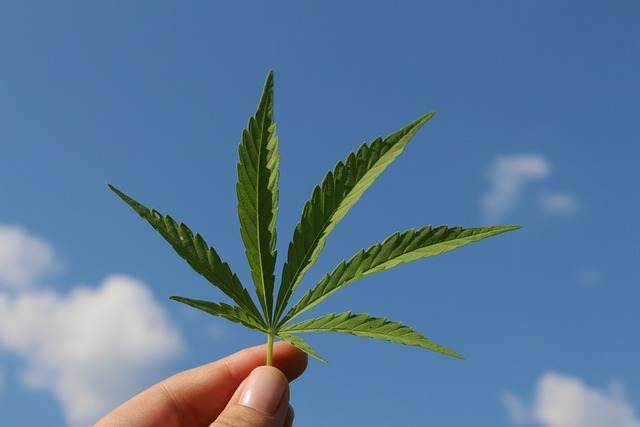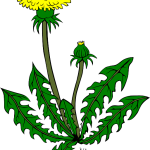THCA buds, abundant in the non-psychoactive cannabinoid THCA, are gaining recognition within the wellness community as a natural and effective means for stress relief. Unlike their psychoactive counterpart THC, these buds interact with the endocannabinoid system to alleviate stress without causing a 'high.' They modulate CB1 and CB2 receptors, which contribute to maintaining the body's homeostasis, offering a calming effect that mitigates symptoms like tension, irritability, and restlessness. The presence of additional cannabinoids such as CBD and terpenes including myrcene, limonene, and linalool in THCA buds synergistically enhance their anxiolytic properties, positively influencing mood and cognitive function for improved wellbeing. These benefits make THCA buds a promising natural alternative to pharmaceuticals for daily stress management, with many users reporting heightened tranquility and focus. For those interested in exploring this holistic approach, it's important to consider the proper cultivation of THCA-rich plants to maximize benefits, as well as to adhere to local laws and consult with healthcare professionals when incorporating them into a stress relief regimen.
Explore the transformative potential of THCA buds as a natural remedy for stress relief. This comprehensive article delves into the science behind tetrahydrocannabinolic acid (THCA), unveiling its therapeutic properties and how it can be harnessed to alleviate stress. From the optimal cultivation techniques to the correct consumption methods, learn the best practices for utilizing THCA buds effectively in your stress management routine. Embrace the natural path to tranquility with an in-depth examination of THCA buds for stress relief.
- Unlocking the Therapeutic Potential of THCA Buds for Stress Relief
- The Science Behind THCA and Its Role in Alleviating Stress
- Cultivation and Consumption: Best Practices for Using THCA Buds for Stress Management
Unlocking the Therapeutic Potential of THCA Buds for Stress Relief

THCA, or Tetrahydrocannabinolic Acid, is the non-psychoactive precursor to THC (Tetrahydrocannabinol), the cannabinoid most recognized for its psychoactive effects. THCA buds have garnered attention in the wellness community for their therapeutic properties, particularly for stress relief. Unlike its psychoactive counterpart, THCA interacts with the body’s endocannabinoid system without inducing a ‘high’, making it an appealing option for those seeking relief from anxiety and stress without cognitive impairment. The potential of THCA buds lies in their ability to modulate the CB1 and CB2 receptors, which are key components of the body’s endocannabinoid system responsible for maintaining homeostasis. This modulation can lead to a calming effect, helping to alleviate symptoms associated with stress, such as heightened tension, irritability, and restlessness.
Furthermore, THCA buds contain other cannabinoids and terpenes that synergistically enhance their stress-relieving effects. Cannabidiol (CBD), for instance, is known to have anxiolytic properties and can complement the effects of THCA in promoting a state of relaxation and reduced anxiety. Terpenes like myrcene, limonene, and linalool are also present in significant amounts, each contributing to the stress-relief experience by influencing mood and cognitive function positively. The combination of these compounds makes THCA buds a promising option for individuals seeking natural alternatives to pharmaceutical options for managing daily stress. Users report feelings of tranquility and focus, making THCA buds a potential asset in any holistic self-care routine aimed at achieving balance and wellbeing.
The Science Behind THCA and Its Role in Alleviating Stress

THCA, or tetrahydrocannabinolic acid, is a natural compound found in the resin of cannabis plants. In its raw form, THCA is non-psychoactive but has been the subject of extensive research for its potential therapeutic properties. When heated or decarboxylated, THCA converts to THC, the primary psychoactive component of cannabis. However, in its acidic form, THCA exhibits distinct benefits, including its role in alleviating stress. Studies suggest that THCA interacts with the body’s endocannabinoid system, a complex cell-signaling system identified as a key regulator of homeostasis. By binding to the cannabinoid receptors, particularly CB1 and CB2 receptors, THCA may influence serotonergic activity, which is closely linked to mood regulation. This interaction could help modulate stress responses, offering a calming effect that is increasingly recognized as beneficial for stress relief.
Furthermore, the potential of THCA buds for stress relief is being explored in various scientific circles. The anti-inflammatory and neuroprotective properties of THCA may also play a role in its stress-relieving effects. Users often report a sense of relaxation without the psychoactive ‘high’ associated with THC. This suggests that THCA could be an effective, natural option for those seeking to manage everyday stress without impairment. As research continues, the nuances of how THCA specifically influences the body’s stress response will become clearer, potentially leading to new, targeted applications in wellness and mental health practices.
Cultivation and Consumption: Best Practices for Using THCA Buds for Stress Management

THCA buds, rich in tetrahydrocannabinolic acid (THCA), have garnered attention for their potential stress-relieving properties. Unlike its psychoactive counterpart THC, THCA is non-psychoactive, making it an attractive option for those seeking the therapeutic benefits without the mind-altering effects. Cultivating THCA-rich buds requires careful attention to several key factors: optimal soil conditions, appropriate lighting, controlled temperature and humidity levels, and a well-managed nutrient regimen. Ensuring that plants are grown in a stress-free environment is crucial for maximizing THCA production. Harvesting should be timed meticulously to capture the highest concentrations of THCA before decarboxylation occurs, converting THCA into THC.
Consumption methods for THCA buds for stress management are as varied as the cultivation techniques. Consumers often opt for traditional smoking or vaporization, which allow for immediate effect and precise dosing. Alternatively, THCA can be infused into edibles or topicals, providing a longer-lasting effect that may be beneficial for managing chronic stress. Regardless of the method chosen, it is advisable to start with small doses to gauge individual sensitivity. It’s also important to adhere to local regulations and guidelines regarding cannabis consumption. For those new to THCA buds, it’s recommended to consult with a healthcare professional before integrating them into a stress management routine, especially if there are underlying health conditions or current medication regimens. With the right cultivation practices and responsible consumption habits, THCA buds can be a valuable addition to a holistic approach for managing stress.
THCA buds emerge as a promising natural alternative for managing stress, with scientific research underscoring their therapeutic potential. Cultivating and consuming these buds judiciously can play a pivotal role in stress management regimens. As the body of evidence continues to expand, it is clear that THCA buds for stress relief warrant further attention within the wellness community. With careful consideration of cultivation and consumption methods, individuals seeking natural stress relief may find THCA buds to be a valuable addition to their health and well-being practices.


